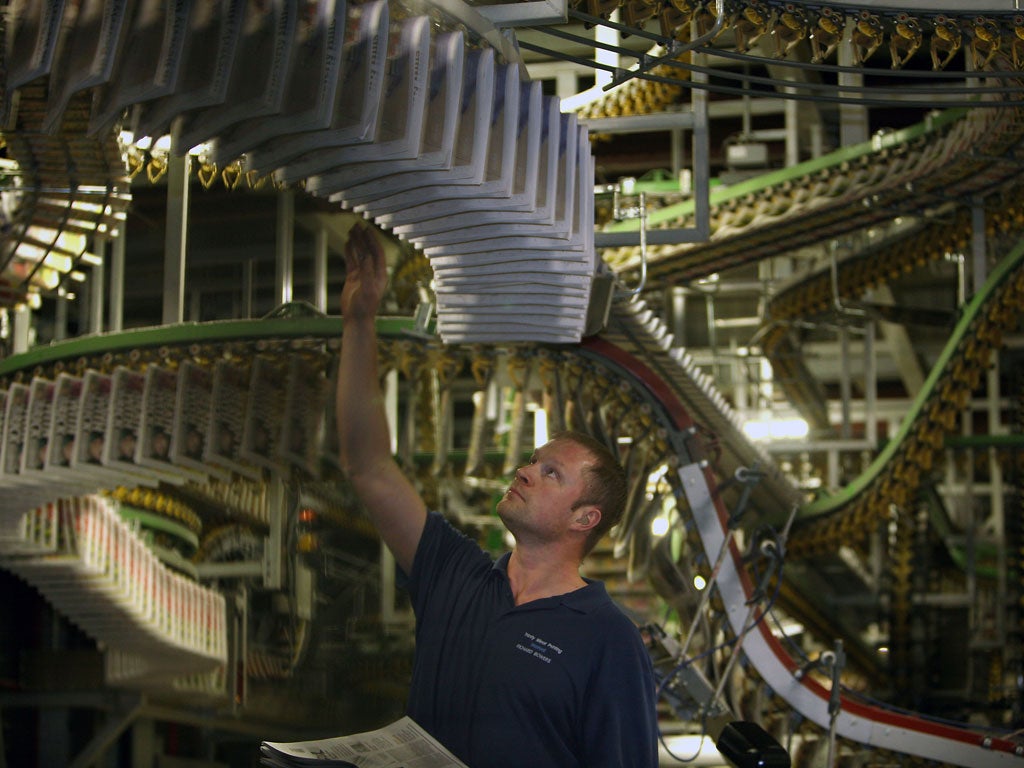Leveson Q&A: So what have we ended up with? And won’t the papers just ignore it?
Ian Burrell answers the key questions about the recommendations

Your support helps us to tell the story
From reproductive rights to climate change to Big Tech, The Independent is on the ground when the story is developing. Whether it's investigating the financials of Elon Musk's pro-Trump PAC or producing our latest documentary, 'The A Word', which shines a light on the American women fighting for reproductive rights, we know how important it is to parse out the facts from the messaging.
At such a critical moment in US history, we need reporters on the ground. Your donation allows us to keep sending journalists to speak to both sides of the story.
The Independent is trusted by Americans across the entire political spectrum. And unlike many other quality news outlets, we choose not to lock Americans out of our reporting and analysis with paywalls. We believe quality journalism should be available to everyone, paid for by those who can afford it.
Your support makes all the difference.Q Lord Leveson talks of a “self-regulatory body” – isn’t that just a continuation of the old Press Complaints Commission?
A No. He uses that expression but what he is actually proposing is an independent body “without any influence from [press] industry or Government” – but one that, to the dismay of newspapers, has its powers underpinned by statute.
Q Will journalists just be able to ignore Leveson’s idea for a regulator – just like they appeared to do with the PCC?
A With or without statutory underpinning, these proposals would introduce major changes in the way newspapers operate – and in opportunities to challenge the stories they write. The regulator could fine papers up to £1m and would dictate “the nature, extent and placement” of apologies.
Q Wouldn’t the regulator just be an old boys’ club of press stooges?
A Not under the Leveson plan, where a “substantial majority” of the panel that appoints the chairman and the board should be “demonstrably independent of the press”.
Q How much punishment could it inflict on miscreant papers? A slap on the wrist?
A Financial sanctions could mean a fine of £1m or up to 1% of the publisher’s turnover. All breaches of compliance standards would be listed in a public “hall of shame”.
Q Is anything been done to help people who don’t have limitless pockets to take media companies to court when they publish false stories?
A Leveson proposes a new arbitration system which is designed to be “fair, quick and expensive”, using legal experts of “high reputation” to determine civil legal claims on a cost-only basis.
Q Will newspapers be pleased about that?
A Investigative journalists might be concerned that they will be repeatedly hauled before tribunals to account for their working methods on any contentious stories. But publishers will hope that such a system might reduce legal costs for defamation actions – and Leveson suggests that “frivolous or vexatious” claims should be promptly struck out.
Q Will there be any impact on the way journalists obtain stories?
A Yes, the scandalous trade in personal information highlighted by Operation Motorman has led to Leveson proposing a tightening up of data protection laws. Concerns over close relations between journalists and police officers should mean an end to “off-the-record” briefing from officers, and all meeting between senior officers and journalists must be recorded and made available for public consumption “for transparency and audit purposes”.
Q Would this regulatory system apply to all written news media?
A No. Although Leveson says it can only be effective if it covers “all significant news providers” this is not, in practice, likely to include the army of bloggers, Twitter users and emerging specialist online sites that have become integral to the news cycle.
Q That sounds like a two tier system – why would anyone want to join up and how do we know if they do?
A Leveson says that a new regulatory body should consider establishing a kite mark system to act as a sign of quality control and help the signatories to the system stand out as a “recognised brand of trusted journalism”.
Q What if a publisher thinks that’s not enough incentive?
A Well, Richard Desmond’s Northern & Shell titles, and indeed Ian Hislop’s Private Eye, stand outside of the PCC. So there have been concerns that there would be renegade titles that will also shun the Leveson model. The judge suggests that papers who are not signed up to the system should be regarded in the courts as having “shown wilful disregard of standards” and as such be subject to potential claims for exemplary damages.
Q Don’t we already have a media regulator in Ofcom?
A Yes, the broadcasting watchdog. Leveson would like Ofcom to have an overseeing role with the new body in order to reassure the public that “the basic requirements of independence and effectiveness were met”. In fact, he goes further. If the press was to reject Leveson’s model of regulation, the judge says that one of the options for such a “regrettable” stance would be to bring in Ofcom “as a backstop regulator for those not prepared to join such a scheme”.
Join our commenting forum
Join thought-provoking conversations, follow other Independent readers and see their replies
Comments